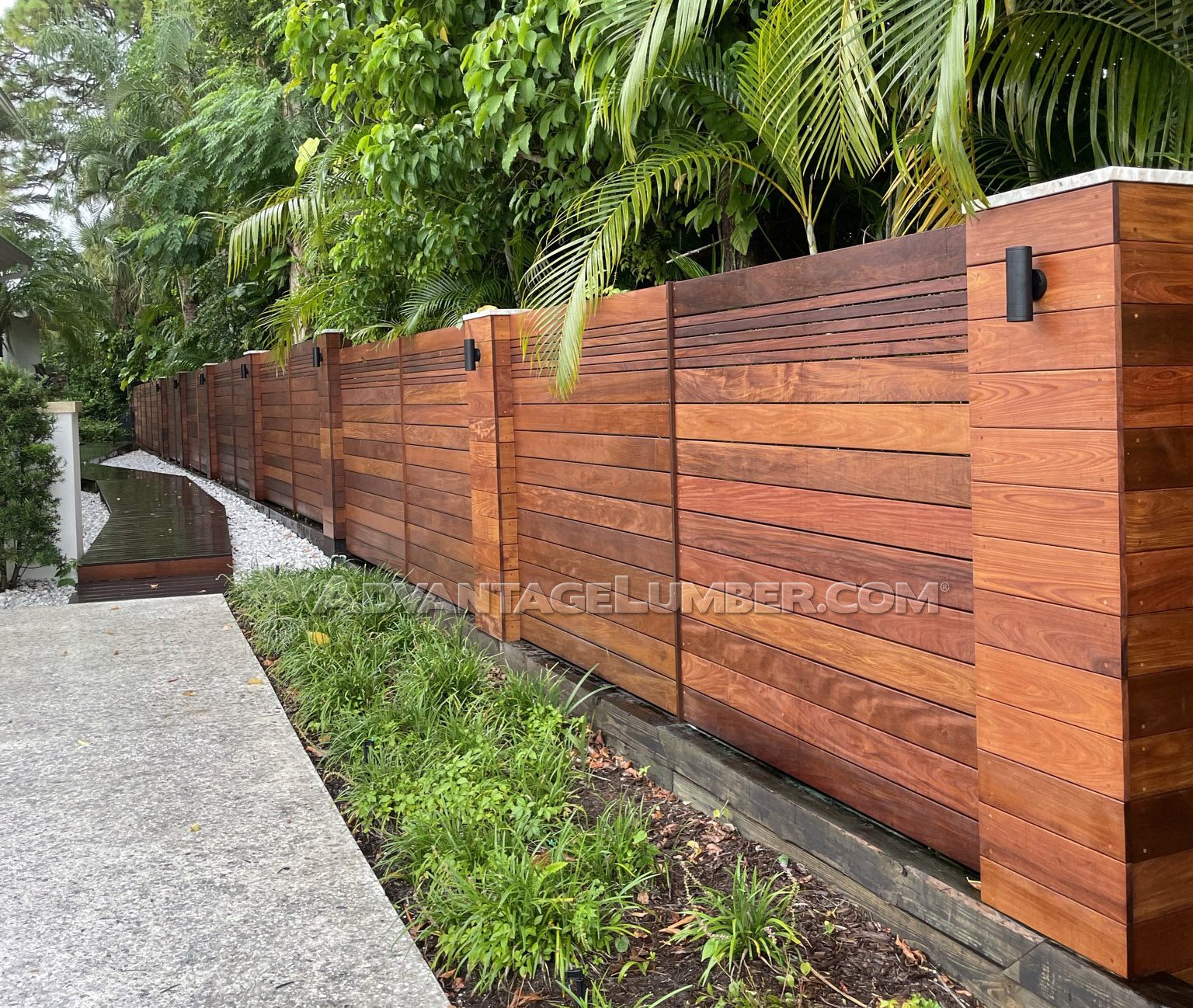When it comes to building a durable, attractive, and long-lasting fence in California, choosing the right wood is crucial. Factors such as climate, budget, and aesthetic preferences play an essential role. Below, we’ll explore the pros, cons, and lifespans of popular wood options for fences in California, including Redwood, Cedar, Ipe, Cumaru, Garapa, Tigerwood, and Brazilian Redwood.
1. Redwood
Pros:
- Naturally resistant to rot and insects.
- Lightweight and easy to work with.
- Beautiful reddish hue that weathers to a silvery-gray over time.
- Widely available in California, making it a more sustainable choice locally.
Cons:
- Softer wood, prone to scratches and dents.
- Can be prone to wood boring insects overtime
- Requires regular sealing to maintain color and longevity.
- Higher cost compared to some softwoods.
- Old growth lumber is hard to find.
Lifespan:
15–20 years with regular maintenance.
2. Cedar
Pros:
- Naturally resistant to rot, decay, and insects due to its aromatic oils.
- Can be prone to wood boring insects overtime
- Lightweight and easy to install.
- Ages gracefully to a silvery patina.
- More affordable than hardwoods like Ipe.
Cons:
- Softer than hardwoods, which may lead to dents and scratches.
- Requires periodic staining or sealing to prevent drying and splitting.
- Less durable than exotic hardwoods in high-exposure areas.
Lifespan:
15–20 years with proper care.
3. Ipe
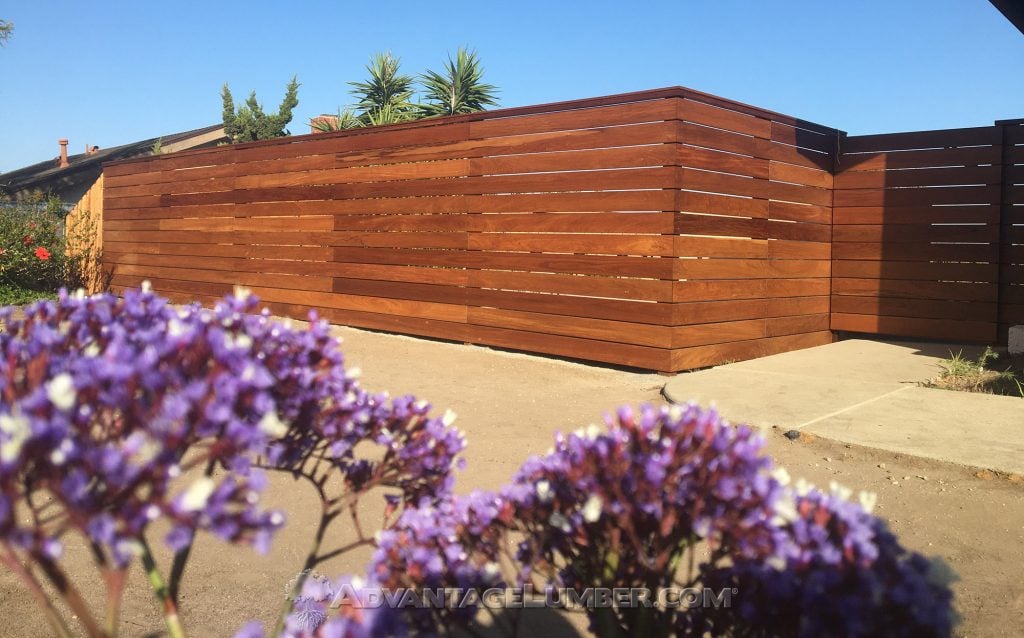
Pros:
- Extremely durable and dense; one of the hardest woods available.
- Naturally resistant to rot, decay, and termites.
- Stunning dark brown color that can be maintained with oil or allowed to weather to a silvery-gray.
- Low maintenance compared to other woods.
Cons:
- Heavy and difficult to work with, requiring specialized tools.
- High upfront cost.
- Limited availability, leading to higher transportation costs.
Lifespan:
50+ years with minimal maintenance.
4. Cumaru
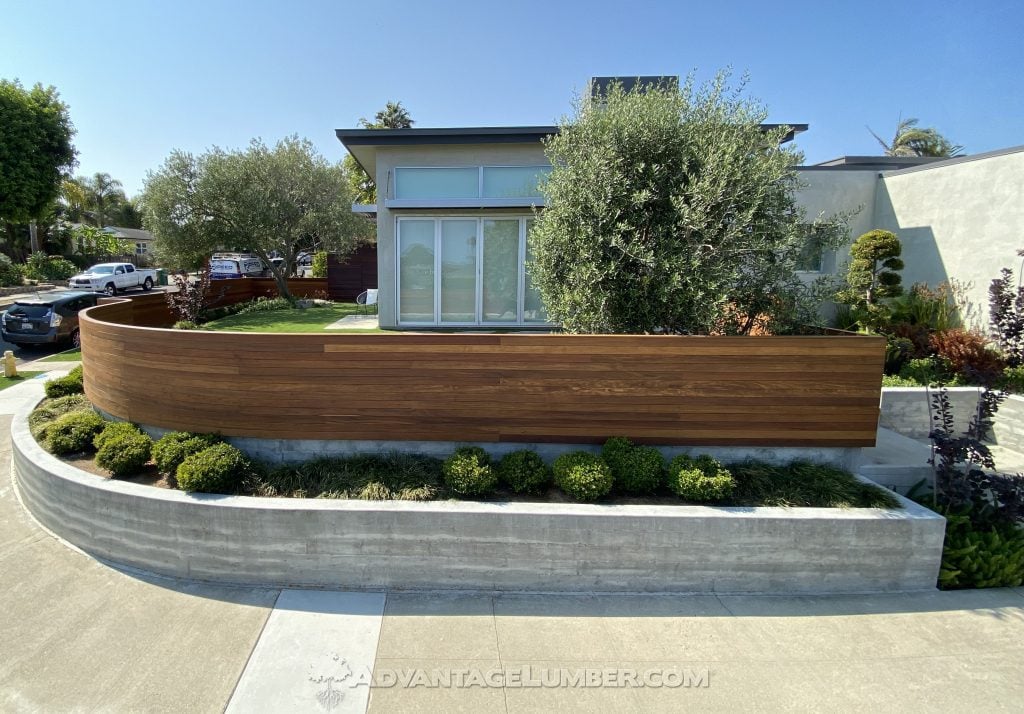
Pros:
- Exceptional hardness and durability, similar to Ipe.
- Naturally resistant to insects and rot.
- Rich, warm tones of golden brown that can weather to silver-gray.
Cons:
- Heavy and challenging to install.
- Prone to surface checking (small cracks) in hot climates if not maintained.
- Slightly less expensive than Ipe but still a high-end option.
Lifespan:
35–50 years with proper care.
5. Garapa
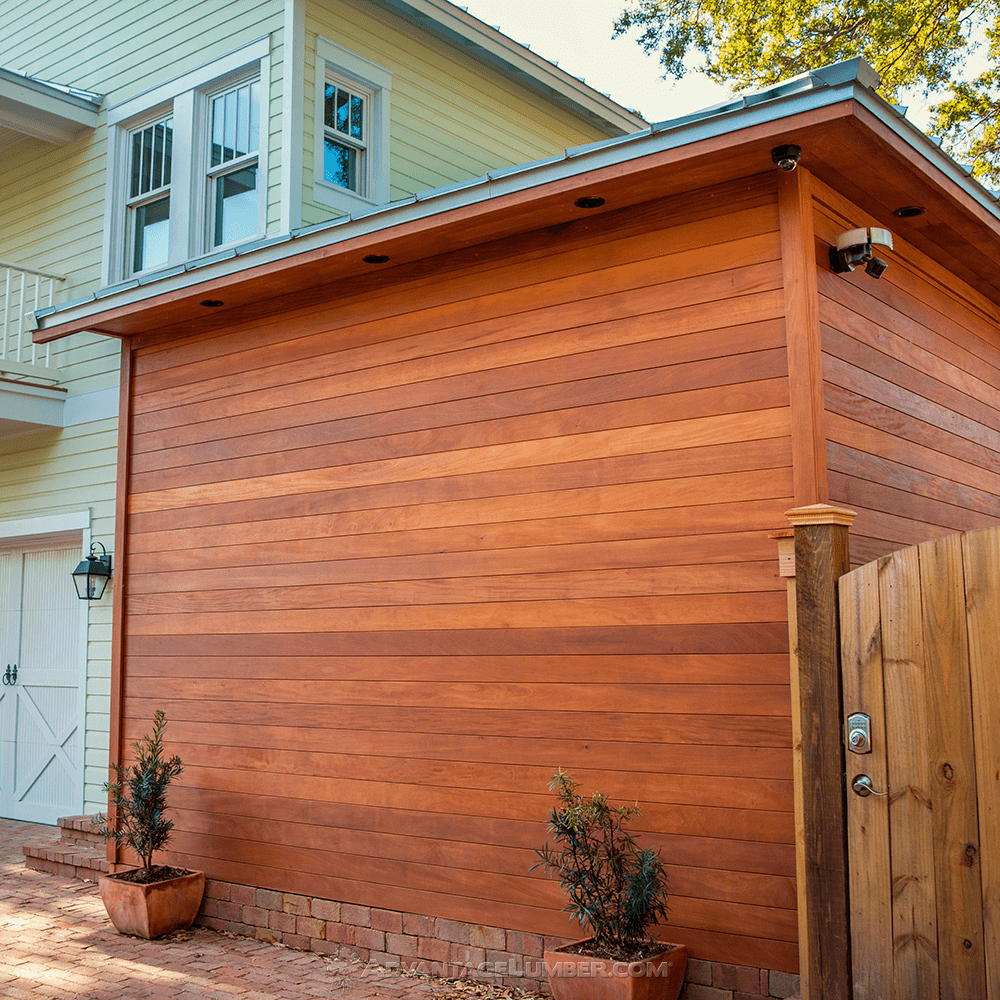
Pros:
- Durable and rot-resistant.
- Lighter golden-brown color, making it a good choice for those preferring a brighter fence.
- More affordable than Ipe or Cumaru.
- Naturally smooth surface.
Cons:
- Less dense than Ipe and Cumaru.
- Requires sealing or oiling to maintain its golden color and prevent graying.
- Availability may be limited compared to other hardwoods.
Lifespan:
25–30 years with proper maintenance.
6. Tigerwood
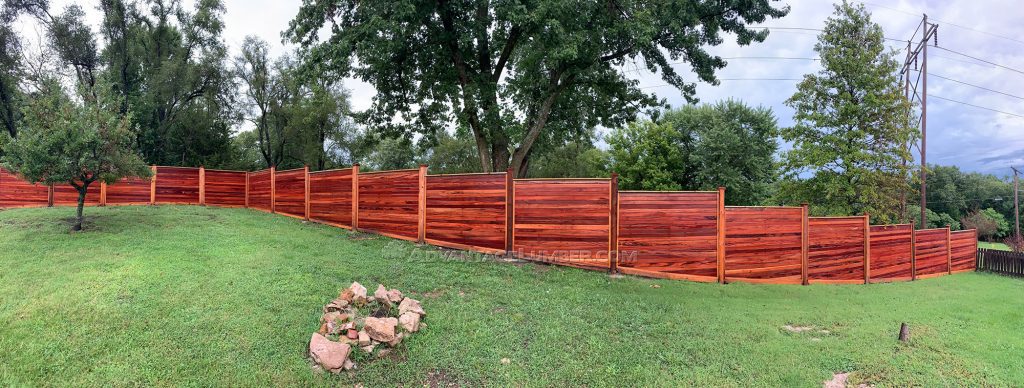
Pros:
- Striking appearance with bold, dark stripes on a reddish-brown background.
- Naturally resistant to rot, decay, and insect damage.
- Hard and durable, ideal for high-traffic or exposed areas.
Cons:
- Higher cost.
- Requires regular maintenance to preserve its unique appearance.
- May fade unevenly in extreme sun exposure without proper care.
Lifespan:
25–35 years with regular maintenance.
7. Brazilian Redwood
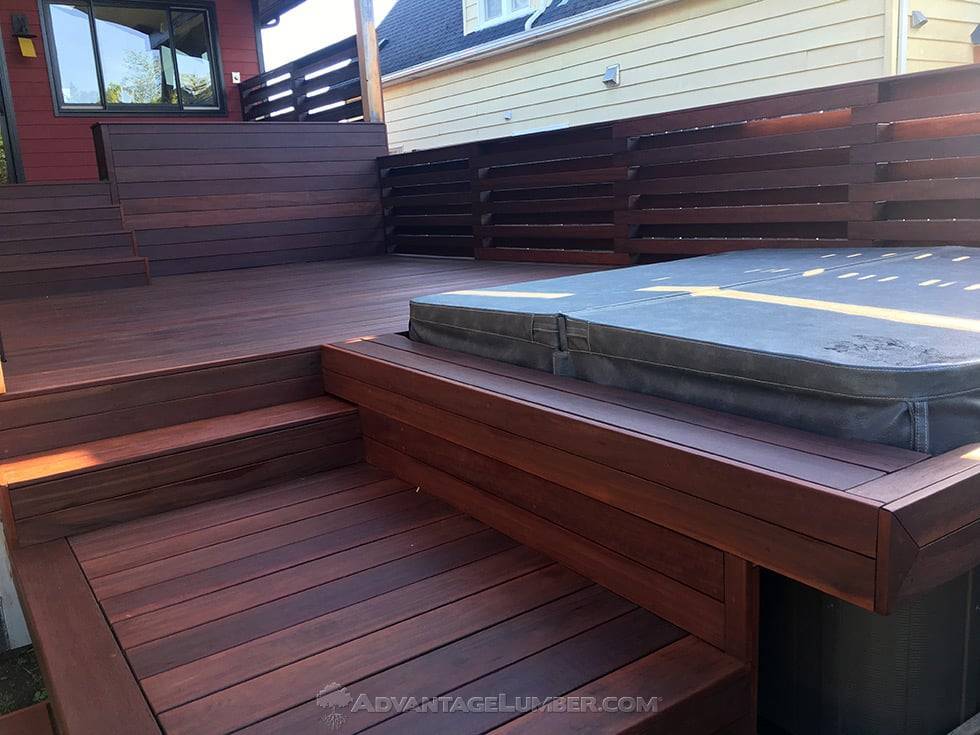
Pros:
- Extremely durable, dense, and resistant to rot, decay, and insects.
- Rich reddish-brown color similar to domestic redwood but with significantly greater longevity.
- Low maintenance and weather-resistant.
Cons:
- Heavy and challenging to work with.
- Higher cost due to its premium nature.
- Limited availability compared to Cedar.
Lifespan:
40–50 years or more with minimal care.
Choosing the Right Wood for Your Fence
Each wood has its strengths and is suited to different needs. Here’s a quick comparison based on common factors:
| Wood Type | Durability | Maintenance | Cost | Best For |
|---|---|---|---|---|
| Redwood | Moderate | Moderate | Mid-High | Local sustainability and traditional California style. |
| Cedar | Moderate | Moderate | Moderate | Affordability and ease of installation. |
| Ipe | Exceptional | Low | High | Maximum longevity and luxury aesthetics. |
| Cumaru | Excellent | Moderate | High | Similar durability to Ipe with slightly lower cost. |
| Garapa | Good | Moderate | Moderate | Bright, unique look and affordability among hardwoods. |
| Tigerwood | Excellent | Moderate-High | High | Bold aesthetics and long-lasting performance. |
| Brazilian Redwood | Exceptional | Low | High | Ultimate durability and a premium look. |
Conclusion
For California homeowners, Redwood and Cedar are popular local choices due to availability and aesthetics. However, if you’re looking for maximum durability and are willing to invest, hardwoods like Ipe, Cumaru, and Brazilian Redwood are unparalleled. For a mid-range option with excellent rot resistance, consider Garapa or Tigerwood.
No matter which wood you choose, regular maintenance such as staining, sealing, or oiling will significantly extend your fence’s lifespan and keep it looking beautiful for years to come.
